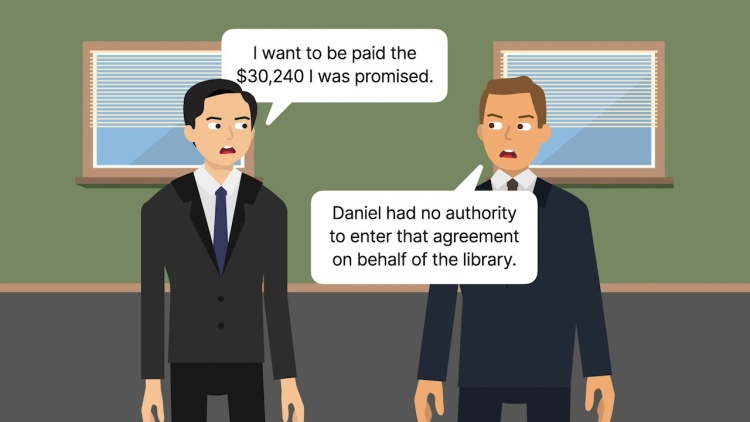Campbell v. Tennessee Valley Authority
United States Court of Appeals for the Fifth Circuit
421 F.2d 293 (1969)
- Written by Anjali Bhat, JD
Facts
Raymond Campbell (plaintiff) entered into an agreement with Earl Daniel, the director of the technical library at the Tennessee Valley Authority (TVA) (defendant), to reproduce 13 sets of technical-trade journals on microfilm for $30,240. Daniel did not have the authority to make this purchase for TVA and entered the contract without the knowledge of his superiors. Campbell delivered the microfilm to TVA and destroyed the journals he had reproduced, pursuant to Daniel’s instructions. The microfilm was placed on the library shelves and available to patrons for two months. The microfilm was then returned to Campbell by registered mail with a letter from Daniel stating that he had no authority to enter the contract, that there was no contract, and that the price was excessive. Campbell refused to accept the microfilm. TVA continued to refuse to pay for the microfilm, stored the microfilm, and forbade the microfilm’s use. Campbell then filed suit, claiming an express contract. The district court granted TVA’s motion for summary judgment because Daniel had no authority to enter into an express contract for TVA. Campbell amended his complaint to set forth a claim of quantum meruit. At trial, the district court instructed the jury that the proper measure of damages was the fair market value of the microfilm. The jury awarded Campbell $30,240. TVA appealed, arguing that in quantum meruit, the proper measure of damages is the amount by which TVA actually benefited or was unjustly enriched.
Rule of Law
Issue
Holding and Reasoning (Morgan, J.)
Dissent (Rives, J.)
What to do next…
Here's why 911,000 law students have relied on our case briefs:
- Written by law professors and practitioners, not other law students. 47,100 briefs, keyed to 997 casebooks. Top-notch customer support.
- The right amount of information, includes the facts, issues, rule of law, holding and reasoning, and any concurrences and dissents.
- Access in your classes, works on your mobile and tablet. Massive library of related video lessons and high quality multiple-choice questions.
- Easy to use, uniform format for every case brief. Written in plain English, not in legalese. Our briefs summarize and simplify; they don’t just repeat the court’s language.





